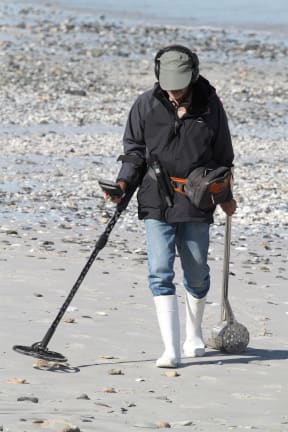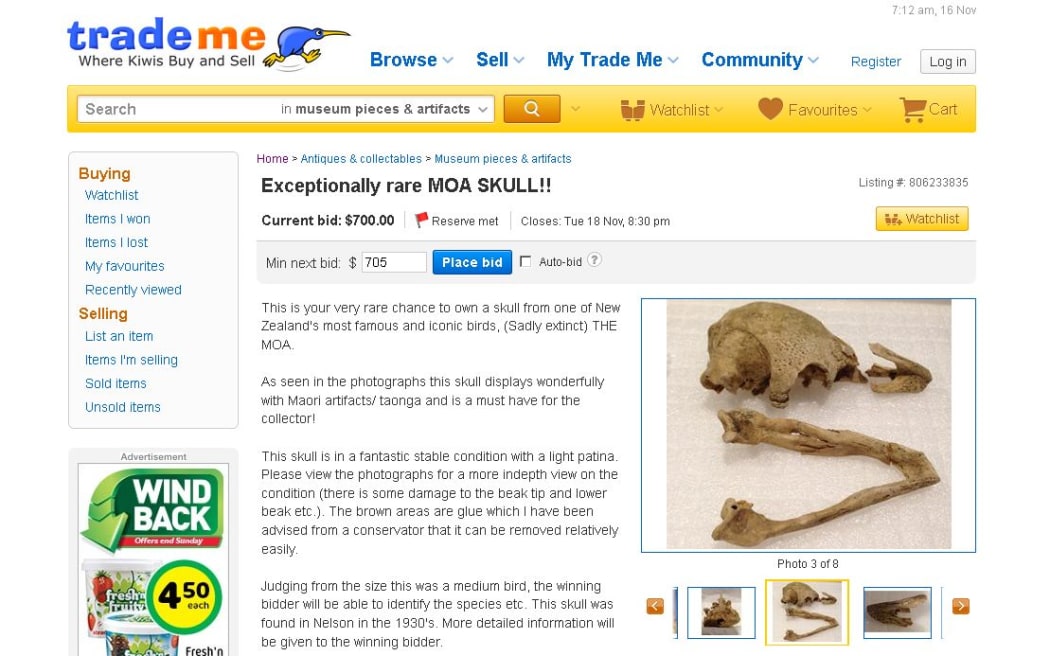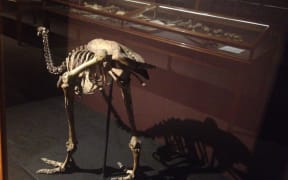Heritage New Zealand is warning relic hunters they could be breaking the law if they don't leave artefacts where they find them.

Photo: Philippe Turpin / Photononstop
The agency says an artefact loses its context once removed from its site, and artefacts nearby could also be damaged.
Senior archaeologist Pam Bain said the online sale last month of moa bones has heightened interest in fossicking for remains.
She said Heritage New Zealand was speaking to Trade Me about where material posted on its site came from.
"We're talking about the issue of material being sold that may have come from an archaeological site, and therefore materials essentially come from an illegal activity."
The Heritage New Zealand Pouhere Taonga Act 2014 defines an archaeological site as a place associated with pre-1900 activity where there may be evidence relating to New Zealand's history.
Ms Bain said it was against the law to damage or alter an archaeological site. Destroying a site could lead to prosecution and a fine of up to $100,000 and modifying one could incur a $60,000 penalty.
TradeMe has previously said it would stop the sale of moa bones if they were being illegally sold on its site.
Trust and safety manager John Duffy said it was legal to sell moa bones in New Zealand unless they had been taken from Department of Conservation land.

Online auction company Trade Me said it only hosted legal sales of moa bones. Photo: TRADE ME
University of Otago archaeology professor, Richard Walter, said the underlying purpose of the legislation was to protect New Zealand from the destruction of its heritage.
While some archaeological sites may appear bland and boring, with the odd black mark and some shells, those sites have the potential to provide a wealth of information about the past and should be protected, he said.
A curator of vertebrates from Te Papa, Colin Miskelly, said from a scientific point of view the issue concerns people taking bones or artefacts from sites, and so removing them from their context.
Mr Miskelly said the biggest concern was that people were trying to steal parts of New Zealand's heritage for financial gain.
He said part of the challenge for archaeologists and paleoecologists trying to make sense of past environments was they were really only dealing with trace amounts of historic material.
He said every piece of the puzzle that is removed reduced the information that could used to piece together the history of the country.
Chatham Islands Council mayor Alfred Preece said there had been many archaeological thefts and site disturbance on the islands.
He said those practices had ceased through a form of self-policing, but locals would not hesitate to report anyone to authorities if they thought they had to come to pilfer.
Mr Preece said the theft of items of importance to a community or any destruction of their archaeological sites can have a traumatic effect.



